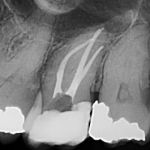- 1. Introduction to Dry Mouth and Dental Health
- 2. How Dry Mouth Affects Oral Health
- 3. Dry Mouth and Its Role in Tooth Decay
- 4. Dry Mouth as a Contributor to Gum Disease
- 5. How to Prevent Tooth Decay and Gum Disease Caused by Dry Mouth
- 6. Treatments for Dry Mouth to Protect Your Teeth and Gums
- 7. Choosing the Right Products to Combat Dry Mouth
1. Introduction to Dry Mouth and Dental Health
Dry mouth, or xerostomia, is a common condition where there is insufficient saliva in the mouth. Saliva plays an essential role in maintaining oral health by helping to wash away food particles, neutralizing acids produced by bacteria, and providing disease-fighting substances throughout the mouth. When saliva production is reduced, it can create an environment conducive to various dental issues. One of the biggest concerns is the increased risk of tooth decay and gum disease.
2. How Dry Mouth Affects Oral Health
Saliva is more than just a lubricant for speaking and eating. It also helps protect the teeth and gums. Without enough saliva, the mouth becomes dry and unable to cleanse itself naturally. This can lead to the accumulation of plaque, a sticky film of bacteria that forms on teeth, which can contribute to tooth decay and gum disease.
Additionally, when the mouth is dry, it is harder to neutralize harmful acids produced by bacteria, which further increases the risk of dental problems. People with dry mouth may experience more frequent cavities, tooth sensitivity, and gum infections.
3. Dry Mouth and Its Role in Tooth Decay
Tooth decay, also known as dental caries, occurs when acids from plaque bacteria break down the enamel of the teeth. Saliva plays a crucial role in preventing tooth decay by helping to neutralize these acids. Without enough saliva, bacteria are not adequately washed away, and the acids continue to erode the tooth enamel.
Furthermore, dry mouth makes it difficult to remineralize teeth, which is the process by which minerals like calcium and phosphate are replenished in enamel after being lost. This makes people with dry mouth more susceptible to cavities, even with regular brushing and flossing.
4. Dry Mouth as a Contributor to Gum Disease
Gum disease, or periodontal disease, begins when plaque and tartar build up along the gum line. In the early stages, it can cause gingivitis, leading to inflammation, redness, and bleeding of the gums. If left untreated, gingivitis can develop into more severe forms of gum disease, such as periodontitis.
Dry mouth contributes to gum disease by allowing bacteria to accumulate more easily along the gums. Without the protective action of saliva, these bacteria can irritate and infect the gums, leading to gum recession, tenderness, and in severe cases, tooth loss.
5. How to Prevent Tooth Decay and Gum Disease Caused by Dry Mouth
Preventing the dental issues caused by dry mouth starts with maintaining proper hydration. Drinking water throughout the day helps keep the mouth moist and flushes away food particles. It's also important to chew sugar-free gum or use saliva substitutes to stimulate saliva production.
Additionally, regular dental checkups are crucial for detecting early signs of tooth decay and gum disease. A dentist can provide treatments such as fluoride varnishes or sealants to protect the teeth in individuals suffering from dry mouth.
6. Treatments for Dry Mouth to Protect Your Teeth and Gums
While there's no cure for dry mouth, various treatments can help alleviate symptoms and protect your oral health. Over-the-counter saliva substitutes or prescription medications can be used to stimulate saliva production. Oral moisturizers and mouthwashes designed for dry mouth can help relieve discomfort and reduce the risk of cavities and gum disease.
If your dry mouth is a result of a medical condition or medication, consult with a healthcare provider to explore options for managing the underlying cause. Your dentist can also recommend specific oral care products that are gentle on your mouth and help maintain saliva levels.
7. Choosing the Right Products to Combat Dry Mouth
If you're dealing with dry mouth, choosing the right products can make a world of difference. There are many specialized oral care products that can help hydrate your mouth, prevent tooth decay, and manage gum disease risks. Products like dry mouth toothpaste, oral sprays, and hydrating mouthwashes can provide temporary relief and improve your overall oral hygiene routine.
For more information on how to protect your teeth and gums from the effects of dry mouth, visit Dentistry Toothtruth for the latest products and expert recommendations.







 Aspen Dental - Plymouth, MA4.0 (306 review)
Aspen Dental - Plymouth, MA4.0 (306 review) North Penn Endodontics Group4.0 (87 review)
North Penn Endodontics Group4.0 (87 review) Dental Bright advanced family dentistry & orthodontics4.0 (69 review)
Dental Bright advanced family dentistry & orthodontics4.0 (69 review) aspen dental, Kevin D. Oh, LLC2.0 (8 review)
aspen dental, Kevin D. Oh, LLC2.0 (8 review) Grady Dental Care5.0 (281 review)
Grady Dental Care5.0 (281 review) Aspen Dental - Glendale, AZ4.0 (602 review)
Aspen Dental - Glendale, AZ4.0 (602 review) The Importance of Oral Health Education During Pregnancy for a Healthy Pregnancy
The Importance of Oral Health Education During Pregnancy for a Healthy Pregnancy Best Tips for Brushing Your Teeth Properly for Healthy Gums: Essential Techniques for Oral Health
Best Tips for Brushing Your Teeth Properly for Healthy Gums: Essential Techniques for Oral Health Why Skipping Dental Checkups Can Lead to Bigger Oral Health Problems
Why Skipping Dental Checkups Can Lead to Bigger Oral Health Problems Advantages of Porcelain Dental Restorations
Advantages of Porcelain Dental Restorations How Can Diabetes Cause Tooth and Gum Problems? Preventing and Managing Oral Health Issues
How Can Diabetes Cause Tooth and Gum Problems? Preventing and Managing Oral Health Issues Healthy Habits for Promoting Good Oral Health and Hygiene: Tips for a Healthy Smile
Healthy Habits for Promoting Good Oral Health and Hygiene: Tips for a Healthy Smile